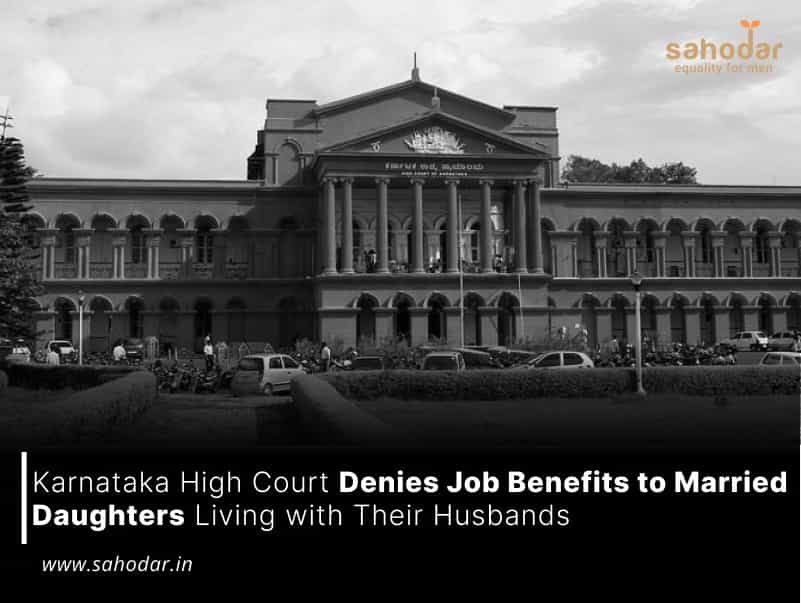The Karnataka High Court, in response to a petition filed by the married daughter of a deceased employee of the Life Insurance Corporation (LIC), has declined to grant compassionate appointment.
In rendering its decision, a division bench comprising Chief Justice Prasanna B Varale and Justice Krishna S Dixit, made an observation that the appellant had entered into matrimony well in advance of her father’s demise, and she was found to be cohabitating with her spouse.
“Our scriptures injunct “bharta rakshati yavvane…” literally meaning that it is the duty of husband to provide maintenance to his dependent wife. That is how our legislations too are structured e.g., Section 125 of the Code of Criminal Procedure, 1973 (applicable to all regardless of religions), Sections 24 & 25 of the Hindu Marriage Act, 1955 (applicable to Hindus, in a broad sense of the term), Section 37 of the Divorce Act, 1869 (applicable to Christians), Section 40 of the Parsi Marriage and Divorce Act, 1936 (applicable to Parsis), Section 20 of the Protection of Women from Domestic Violence Act, 2005 (applicable to all persons regardless of religion and marital status), Sections 36 & 37 of the Special Marriage Act, 1954, The Muslim Women (Protection of Rights on Marriage) Act, 2019 (applicable to Muslims wives), etc., have been structured,” it observed.
The court made the observation that no legal provision or binding precedent had been presented which definitively guarantees maintenance entitlements to a married daughter in the context of her father, particularly when she is cohabitating with her spouse.
The appellant contended that, akin to a son of a deceased employee who passed away during active service, a married daughter should be accorded equal eligibility for compassionate appointment.
The court noted that the LIC Recruitment of Staff Instructions vide Clause 21 (ii) exclude a married daughter from being eligible for appointment on compassionate basis. “These Instructions having the statutory flavour partake the character of subordinate legislation. In the absence of any challenge being laid to their validity, there is a presumption that they are valid and enforceable,” it held.
The court also mentioned that usually, compassionate appointment is given when the family of the deceased employee is facing financial difficulties. However, in this case, the Court noticed that the Life Insurance Corporation (LIC) had given a large sum of Rs. 1,58,06,025 to the family of the deceased employee as part of his benefits after he passed away.
“By no stretch of imagination, the members of the family, assuming that a married daughter too happens to be one, therefore, cannot argue of financial distress,” Court said and dismissed the appeal.

